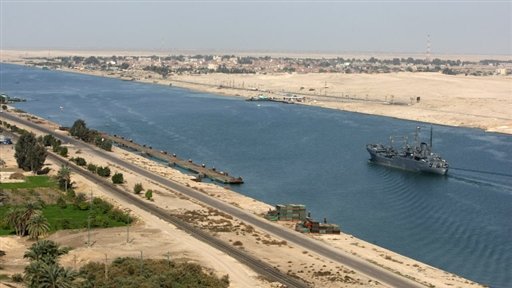LINKdotNET revealed recently that it suffered EGP 100m in losses from the installation of multi-service access node (MSAN) cabins, with 72,000 customers lost to TE Data. LINK has also been troubled by the high cost of infrastructure rental in general. The high-speed Internet services division of Mobinil has requested a 92% cut in rental prices of infrastructure provided by Telecom Egypt (TE).
In an interview with Daily News Egypt, Said Wassem Arsany, CEO and managing director of LINKdotNET, talks about the situation and the general state of the high-speed Internet business in Egypt.
How large are your losses due to the installation of MSAN cabins?
The company lost 72,000 subscribers because of TE’s change of landline numbers. The company lost EGP 100m over a year and a half, specifically from mid-2014 to date. The losses in revenues are estimated at 10-15%.
How many subscribers do you currently have?
LINK’s customers reached about 510,000 in November. We aim to double the number of our call-centre employees as part of the plan to improve our services in order to keep our current customers.
What is your market share at the moment?
Our share reached 17% of the market of high-speed Internet “ADSL” after the decline of our market share during the past period due to the change in landline numbers, which caused us to lose a large number of customers that were transferred to TE Data. This came as a result of the installation of MSAN cabins.
Why didn’t you propose solutions to replace the transferring of customers to a rival company?
We have made a proposition to the National Telecommunication Regulatory Authority (NTRA) in order to establish mechanisms that organise relations between companies, as well as compensating for losses because of customers leaving, with the presence of six operators of fixed internet services in the market. A meeting was held with the Minister of Communications, Yasser El-Qady, a few weeks ago in order to reach quick solutions for affected companies.
El-Qady promised to solve the companies’ problems and negotiate with TE in order to solve feuds and reach new agreements that organise work in the Internet market.
NTRA receives 30,000 monthly complaints about the poor quality of Internet in Egypt. TE must increase cooperation with fixed-Internet service providers through providing infrastructure services at suitable prices.
Will the fixed-internet market continue to grow?
Of course. There are 45-50 million Internet users, and household use represents nearly 45-50% of total users.
In your opinion, what are suitable solutions for solving the conflict within the sector?
The Egyptian market needs an integrated operator that can offer mobile, Internet and infrastructure services. Obtaining licences and permits for necessary procedures must be facilitated too over the upcoming period.
We ask the NTRA to protect competition, ban any practices of monopolisation and compensate for the losses of Internet companies due to the installation of MSAN cabins.
How many Internet users are provided with the service through fibre cables?
Only 5% of total current subscribers use fibre cables. We aim to convert all our customers to fibre cables by the end of 2016.
How big are the company’s investments in the Egyptian market?
The company’s investments total EGP 600m annually, and they are injected into LINK’s expansions and the improvement of its services.
TE reduced the prices of infrastructure rental recently. Is this enough?
Of course not. Customers look at our current prices without taking into consideration the costs companies are bearing in order to offer their services. Costs include maintenance, hardware devices and more commercial expenses, in addition to employee’s salaries. Moreover, price inflation in Egypt is continuously raising costs, and despite that, Internet companies have not raised prices over the past few months.
We have asked TE to reduce the prices of infrastructure rentals by 92% in order for us to be able to decrease Internet prices.
International prices of maritime cables have declined by 90% over the past 10 years. In light of this, we have asked TE to reduce their prices, which have not changed much in the past 10-15 years.
Is TE biased towards TE Data at the expense of other companies in the sector?
The merging between TE and TE Data gave the later many privileges that caused losses to the other competing companies. TE Data acquired more than two thirds of the high-speed internet, which allowed it to lower its prices. According to global monopolisation laws, any company’s acquisition of 25% of the market is considered monopolization, and TE Data’s share exceeds 60%.
What about communications projects within urban communities?
LINK is offering its communications services to five urban communities so far. However, this activity is facing several challenges, most prominently the absence of cooperation from TE’s side in providing infrastructure services in the ways authorised.
Will you change your commercial brand as a company owned by Mobinil?
Our brand will change to “Orange” during the coming year, once we have finished all the official and legal procedures of transferring Mobinil to the global company Orange.
What is the size of the fixed Internet market in Egypt?
The high-speed ADSL Internet market is worth nearly EGP 4bn per year, operated through companies affiliated to mobile operators and TE’s TE Data.




